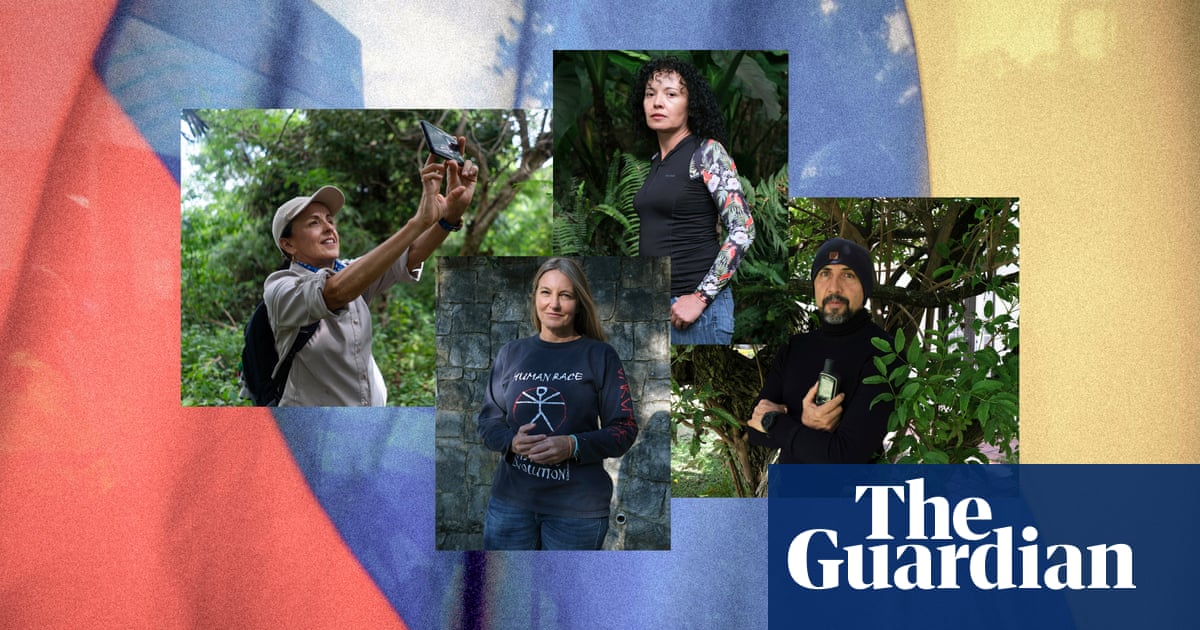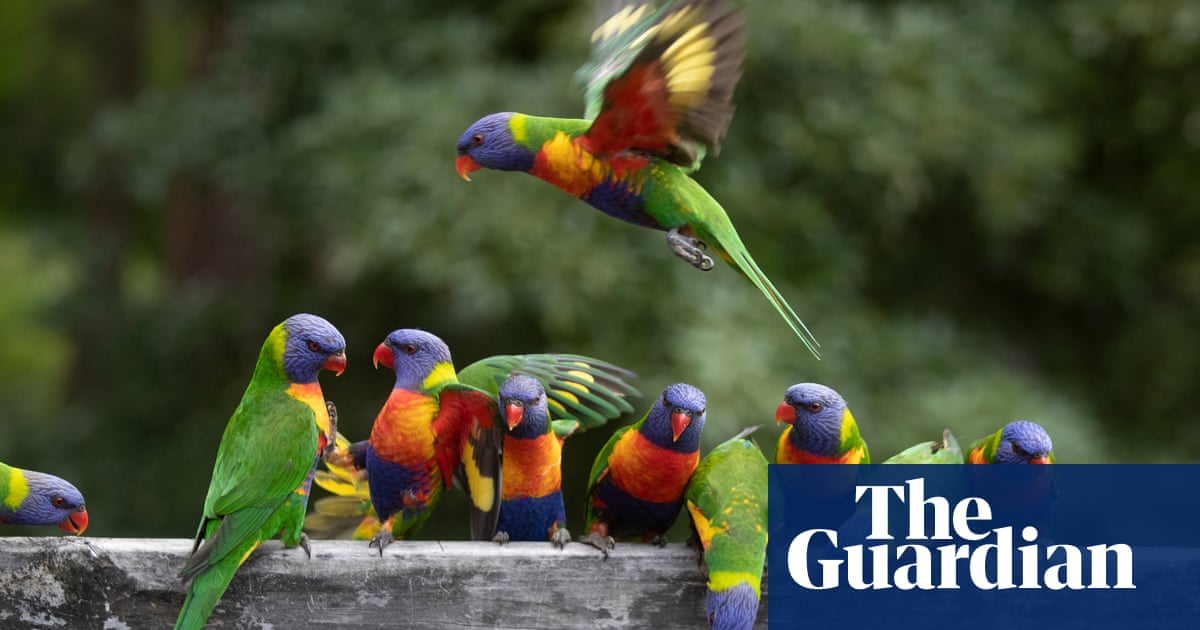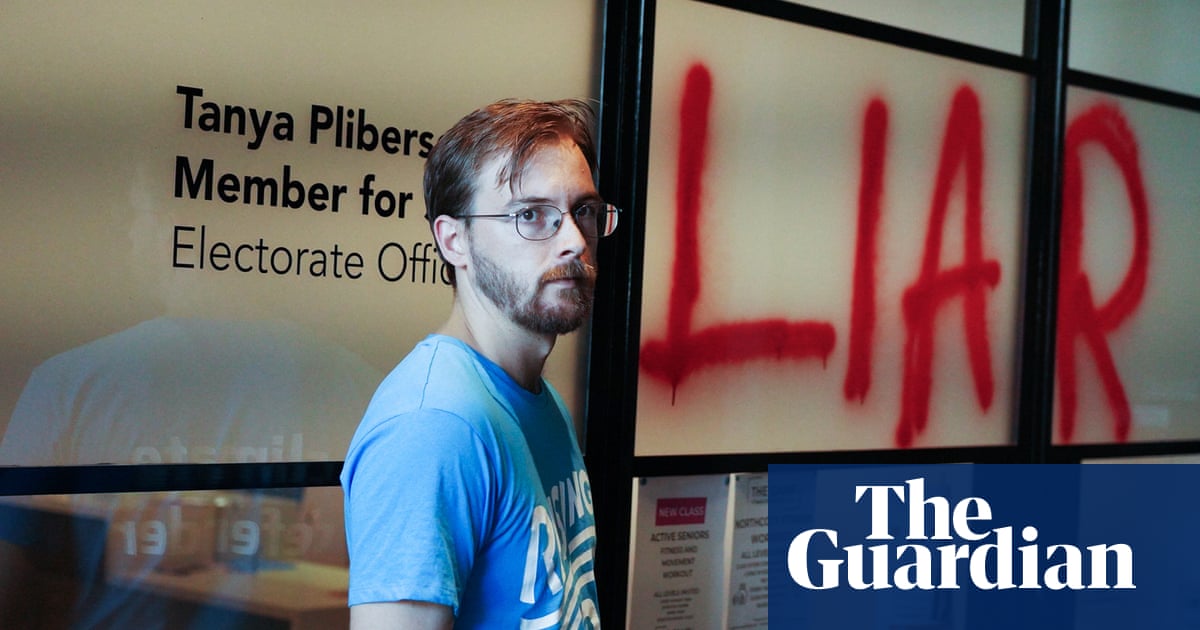Death threats, bodyguards and a Farc commander called Smurf: living dangerously with Colombia’s nature defenders | Cop16

Politicians, conservationists and business people from around the world met last week to discuss how to save nature at the Cop16 biodiversity conference in Cali, Colombia.
For those working on the ground, however, it is the most dangerous country in the world to fight for the environment. A third of the 196 environmental defenders killed last year were Colombian. Here, four conservationists give us a glimpse into their working lives and the dangers they face.
‘I am just a small woman trying to save monkeys’: Ángela Maldonado
When I was 28 years old, I went to the Revolutionary Armed Forces of Colombia’s (Farc) controlled area in Vista Hermosa to look for an endemic Colombian species of woolly monkey. A lot of people said I was completely nuts, but I needed to deal with the Farc to get into the area where the monkeys are.
I went to talk to the Farc commander. His nickname was Smurf, because he was very short. He was also very dangerous – people told me five days before I met him he had killed someone. From the very beginning he was nice to me, and I always think even the worst people have a good side.
He told me where to find the monkeys and contacted other Farc commanders so I could enter their towns. I was always on my own. I don’t represent a threat to anyone – I’m 160cm tall and weigh 52kg. To these people I am just a small woman trying to save monkeys. That was in 2001 – I have spent more than 20 years working in the Amazon, fighting the trafficking of wildlife, focusing on monkeys. I have managed to establish hunting bans for woolly monkeys in southern Amazonas, at the border between Colombia, Peru and Brazil.
I hope the international community supports a peace agreement with all the illegal armed groups we have. Once the rights of local people are respected, we can move forward for making peace with nature.
Ángela Maldonado is the founder of Fundación Entropika
‘I had to bring a bodyguard and wear a bulletproof jacket’: Fernando Trujillo
When I was five, I went to the Orinoco River with my grandfather and saw river dolphins for the first time. It is amazing to be in a tropical forest with toucans and at the same time see dolphins in the water. For people in the Amazon, they are like the jaguars of the water – they believe the dolphins have cities underwater and live like humans.
Pollution is one of the greatest threats to river dolphins in the Amazon. Goldminers use mercury to extract the precious metal from river silt, dumping it in rivers and lakes. I found out my own levels of mercury were far above safe thresholds, probably because I had eaten fish in the Amazon for so many years. It can cause damage to your central nervous system – I am lucky I have not been affected.
In 2016, my life was threatened because I provided analysis of mercury in an Amazonian fish that led to the Colombian government banning it being sold. When I went into the Amazon I had to bring a bodyguard and wear a bulletproof jacket. It was a very sad moment in my life. I was very worried for my daughters and stopped bringing them to the Amazon for some years. In the Amazon there are more than 500,000 people working in organised crime – they are handling gold, cocaine, timber and animal trafficking. The main protection from armed groups comes from being onside with local communities, and that is how we work.
I have surveyed more than 84,000km (52,000 miles) of waterways in seven countries looking for river dolphins. Almost one year ago, we got 11 countries from across Asia and South America to sign a landmark treaty to protect river dolphins. At Cop16 we were promoting a resolution for dolphins to be protected in 29 key sites in Asia and South America.
Fernando Trujillo is the founder of Fundación Omacha
‘There are people who have no scruples in ending a life’: Sandra Bessudo
Malpelo is an island 500km off Colombia’s Pacific coast. The first time I went there in 1987 I fell totally in love with it. The life underneath the surface of its sea is incredible: the island is surrounded by a spectacle of hammerhead sharks, snappers, barracudas, rays and moray eels. When I was there I saw large tuna boats with their decks full of dead sharks, dropping their anchors on the coral – it was devastating to see.
After that, the only thing I wanted to do was to go back and do everything in my power to get the government to protect it. I started petitioning the president, and thanks to my work, Malpelo has been protected since 1995. There is a “no take” area of 47,000 sq km around it.
after newsletter promotion
I have faced difficult moments, with threats made against me and my team because of my work. When I started to fight against illegal fishing, I was up against several large boats, not only Colombian but also from other countries. There weren’t any protocols about how to proceed, so I literally got on board the boats, explained to them what they were doing wrong and made them swear before God that they would not enter again. I was a young woman at the time, and somewhat naive, but I always approached them in a respectful and friendly manner. We did receive threats, and the Colombian navy eventually told me to be more careful and not to be so trusting.
Today, unfortunately there are people who have no scruples in ending the life of another person. I hope no other environmental activist loses their life for defending life.
Sandra Bessudo is the founder of Fundación Malpelo
‘Don’t take sides and never discuss politics’: Rosamira Guillen
I have made it my mission to save cotton-top tamarin monkeys, which weigh just one pound and are about the size of a squirrel. They have a shock of white hair that sticks out like Einstein, and little warrior faces – they’re very territorial. When I first saw one I thought, holy cow, this is a special little monkey.
I was director of Barranquilla zoo when I started working on the conservation of these monkeys, but when I started seeing them in the wild, I realised that is what fills my soul – being in the forest. Five decades of civil unrest in our country displaced farmers, who chop down the forest where these monkeys live to make space for traditional cattle ranching and agriculture. We are creating protected areas and discouraging hunting within the forest. It is slow progress: you can cut down a hectare of forest in a day but it takes at least 20 years to create.
The areas where we work were “red zones” in the past, meaning they were run by illegally armed groups, until the signing of the peace agreement in 2016. It’s that kind of landscape where illegally armed groups can hide. We heard a lot of stories from the people living there about how terrible it was: in the middle of the night they would cut the power off and come to your house and take random people, and you would never hear from them again. Sometimes, their bodies would be found. It was fear and silence in these communities.
Cop16 was important because it created opportunities for raising funds for organisations such as ours, which are small and grassroots, and very much need the support to continue their conservation efforts.
We have already protected more than 5,000 hectares (12,400 acres) of land for the monkeys. Safety remains a concern for us. We try to stay in the margins, politically speaking. We don’t take sides, to avoid being labelled as sympathising with one side or another. We never discuss politics in our conversations, to avoid accidentally treading on someone else’s foot. Just do your work and have fun, that’s what I tell my team.
Rosamira Guillen is co-founder of Fundación Proyecto Tití
Find more age of extinction coverage here, and follow biodiversity reporters Phoebe Weston and Patrick Greenfield on X for all the latest news and features




